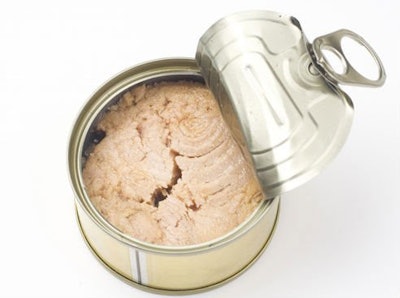
Canned tuna, a multi-billion-dollar market, is often caught by Pacific Islanders who work as much as 18 hours a day and are often not properly compensated, according to Dr. Patricia Kailola, CEO of Fiji-based NGO Pacific Dialogue Ltd., interviewed by an organization called Human Rights at Sea.
Many of the problems mimic those reported in other fisheries, such as the South-east Asian long-haul fishery, Kailola said. Trickery, illegal contracts and debt bondage (where crew members are obliged to “pay off” the cost of their travel and papers) and non-payment of wages, are common.
On board, the men can be expected to work 18 hours or more a day. They may face beatings for not understanding instructions and monetary penalties for “transgressions” or for not following instructions to the satisfaction of ship officers.
“We know of captains withholding plane tickets and papers from hard-working crewmembers who have completed their tenure; they have attempted to blackmail them into working several more months without pay,” she said.
To read more, click HERE.



















